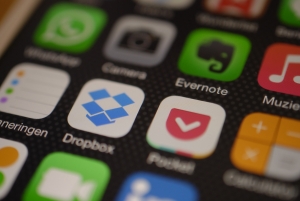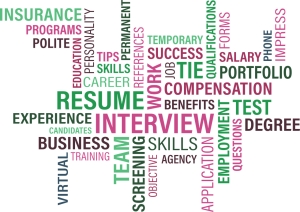Chris Potter
The Best Online Tools for Event Managers
For all the glamour, camaraderie and excitement, careers in events management can be highly pressurised. So anything that makes the job a little easier has got to be worth considering. But with the proliferation of apps and online tools that are free or can be hired cheaply by the month it can be hard to choose which will work for you.
We asked a few event professionals about the tools available online for event managers that have taken the heat off for them. If you haven’t yet made use of these, it might be time to have a look and find out what works for you.
Doodle
An excellent scheduling tool if you’re trying to organise meetings with a number of people, each with their own schedules and priorities. You suggest some options for times to meet and your invitees indicate on the shared calendar which options work best for them. Doodle works whether you’re looking to organise one group event or a number of one-to-ones. Once again, a basic version is free to use.
EventBrite
Few marketing professionals will be unfamiliar with EventBrite, the online invitation, ticketing and attendee management platform. You create an event on EventBrite, for free if it’s a free event, and then can promote to your target audience using the built in invitation software. Invitees can then register on EventBrite and you can manage the whole process from dashboard in the background.
Event Kingdom
Event Kingdom is a plugin app for EventBrite which enables you to send sophisticated animated invitations for you event. Integrates with EventBrite or can be used on its own.
Google Maps
Most of us wonder how we ever managed to find anywhere without Google Maps and it can certainly be a very useful tool for event managers. You can create a custom map for the event, so attendees can plan ahead and book hotels, if necessary. Google Maps is intuitive to use for your invitees, accurate and up-to-date and can save you the hassle of receiving lots of questions about the location of the event, leaving you focus on where you can add most value.
Facebook Events
With Facebook events, you can post details of an event to help spread the word to a wider audience. When attendees confirm they are attending this information can be shared with their followers and an additional benefit is that they will be sent a reminder before it, so they have no excuse to forget about it. You might also be able to create a sense of community around your event, which could be very powerful.
Google Drive or DropBox
Both Google Drive and DropBox offer ‘shared drive’ functionality in the cloud allowing you to back up important documents and share them with selected colleagues and contacts. It’s often better than sharing documents by email.
Documents and folders can be password protected so you can control with accuracy who can access what. That said, there have been security issues in the past, so choose which documents are shared carefully and follow best practice.
www.google.com/drive or www.dropbox.com
Hootsuite and Buffer
Hootsuite, Buffer and numerous other competitors are great ways to organise your social media announcements to promote your events. Their scheduling functions and autoresponse systems can be real lifesavers as you approach the critical, busy few days just before an event. There’s some debate about which is the best platform. This particular author likes Buffer for scheduling and Hootsuite for monitoring but why not try them both out on a free trial and see what you think?
www.hootsuite.com or www.buffer.com
Venue Search
Helps with the arduous task of finding venues throughout the UK, Europe and worldwide. From organising large-scale events and elegant awards to company roadshows or sourcing hotels or apartments for delegate accommodation, Venue Search can match your vision and budget to a venue that will perform.
What else should we have included? Email suggestions to communicate@regananddean.co.uk and we’ll include the best in an update.
How to Stay Calm during a Job Interview
Whatever stage you are in your marketing or events career, and even if you’ve already attended a number of interviews, this doesn’t mean you won’t suffer from nerves from time to time. Sometimes most unexpectedly. In the same way that even the most talented actors might experience stage fright, so it’s possible a particular question or style of interviewer might throw you. And just like stage actors, it pays to have a few tricks up your sleeve, just in case.
Break the ice early
How you go into the interview and start it off can really set the tone for your sense of calm - so it’s always a good idea to try and engage in some initial more relaxed communication early on, maybe opening up a conversation with the Receptionist, or include a more informal question to your interviewer at your greeting, so you have a moment to get into your stride and find your natural persona and voice early on.
Focus on Experience
In times of stress, it can be all too easy to focus on the elements of a role you feel you can’t do, or that you think you’ll find most challenging, instead of considering the experience you do have and your key strengths. So it’s important to remind yourself that if the recruiters didn’t think you could do the job you wouldn’t have been invited for interview. If, for example, you’re experienced in organising public events but the client is looking for someone to organise B2B seminars, they clearly recognise your transferrable skills. If they have that confidence, so can you.
Taking a bit of time just in advance of the interview to review and remind yourself of your experience, all that you have achieved to-date and your particular strengths will make you feel more relaxed during the interview process.
Listen
If anxiety kicks in during an interview, it can be very difficult to concentrate on what the interviewer is saying. You might even ask a question towards the end of the interview that the interviewer has already covered. This can create the impression that you are not paying attention or that you are indifferent to the role, even if it’s the perfect career move for you.
It is imperative to listen to the interviewer, even while you fight nerves, as this will help you answer questions fully and enable you to ask unanswered questions at the end of the interview.
One idea, that works for some people, is to internally repeat what the interviewer is saying to you. So inside your head you hear, “What [what] are [are] you [you] looking [looking] for [for] in [in] your [your] next [next] role? [role?]” This is an odd, but for many people powerful, technique but don’t try it for the first time in an interview! You can test it out listening to an audio book.
Breathe
Practise deep, regular breathing to remain calm during interview. Keep it natural and slow and allow yourself to pause. If you find yourself tensing up, breathing out a little longer than you breathe in triggers an automatic relaxation. Try it.
Stop and Ask Questions
Taking time to stop and consider your answer during an interview can be a great way to calm your nerves. It is important to remember that there is no rush with the interview and if you are not quite sure about the question or you need time to consider your answer, take the time. You won’t be shown the door for pausing and considering a question - and your response - carefully. There’s no prize for answering the questions in the quickest time. Ask for clarification if you need it.
Turn to Drink!
In most interviews, you will be offered a glass of water or there will be water on the table. If you’re talking a lot and are concerned your throat may dry out this this will be a reassuring presence. But taking a sip of water can also be a useful delaying tactic, giving you time to think about the question and your response. Of course, the interviewer will know what you’re doing, but you won’t be penalised for it.
Don’t take ice if is offered (very cold drinks restrict the throat) and politely decline offers of tea or coffee. Stick to water.
Feel Tense? Use it to your Advantage.
If you find yourself tensing up, notice where you’re feeling most tense and - if you can do so inconspicuously - briefly tense those muscles a little tighter and then release. You’ll usually find you revert to a more relaxed state.
Keep the End in Mind
When you start feeling nerves during the interview, just remember, it will soon be over! Few interviews are life threatening - the worst that can happen is you don’t get the job and if that happens there will always be other opportunities in the future. Treat interviews seriously, of course, but most will take an hour or an hour and a half, even for the most senior roles.
Visualise yourself leaving the interview with your head held high feeling you’ve done your best, or visualise telling your partner, family or friends about it later - this will help you separate yourself from your ‘in the moment’ anxiety.
And at the End
If you feel your nerves have got the better of you, there is no harm feeding this back to the interviewer, either via your recruitment consultant, or with the interviewer at the end.
You’ll find that your nerves will not have been as obvious as you think - and any interviewer will be impressed when they do see someone whose nerves come to the fore - but then manages to work through them and still do a good interview.
Of course, the best way to stay calm in an interview is to turn up well prepared, something we’ve covered in some detail in previous blogs, including;
- How much research should I do for a Job Interview?
- How to make interviews work for you.
- 5 ways to mentally prepare for your interview.
At Regan & Dean we work hard to ensure that whether our candidates are being interviewed for senior marketing jobs or opportunities in event management they feel well briefed and have all the guidance they need to stand out. Always talk to your Consultant before you go in for an interview - they’ll be able to give good advice and a bit of a pep talk to help you stay calm - and be the best you can be.
The recruitment process can be costly, so savvy employers will take every measure to ensure they make the right decision when hiring someone new. And that can include looking on social media. If you use social media in any way, you are traceable and employers are increasingly using this to their advantage. It is thought that at least 60% of employers will check the social media sites of potential hires during the recruitment process, so if you want to get that job, be careful what you put out there!
Here are some ways you can minimise your risk of being excluded from an opportunity, before you have had the chance to prove yourself.
Privacy Settings - check you’re set up correctly
Most social media sites, including Facebook, have privacy settings where you can restrict who sees your content. Although you can’t fully control everything, it is a good idea to set your privacy settings so that only friends can see your updates. Even with restrictions, you still need to be really careful about what you share on social media. You may be able to delete it after, but that doesn’t mean that people haven’t seen it.
Badmouthing Current Employer - a big no no
No matter what you think of your current employer or the job, don’t be tempted to put this on social media for everyone to see. If you post negative comments about your employer, any future employer will be concerned about what you say about them. It doesn’t show much professionalism in general and could jeopardise your chances of landing a great job. So, no matter how hard your day has been - be careful how you report it on social media - don’t use it to let off steam as it may one day catch up with you.
General Attitude - what does it say about you as a prospective employee
Employers only really have your interview to go on when making a decision to hire you, they don’t really know anything else about you. One negative person in an office can easily bring everyone else down, which then affects morale, motivation and productivity. If an employer finds any racist, sexist or generally negative posts on your social media, they will probably think twice about hiring you.
Personal Problems - keep them personal
We have all seen those people who air their dirty laundry on social media and it may just make us cringe, but it is a red flag to employers. Social media is supposed to be a platform to connect and keep in touch, it is not a place to talk about your bad relationship or how your friends have let you down. For most people these are things to share with your nearest and dearest, not to put out for the world to see.
Photos - too much information!
Everyone enjoys a night out, but if your social media site is full of photos of you falling out of clubs, a potential employer might question your reliability. Employees are often caught out by employers when they call in sick and then post photos of themselves on a night out, so use caution when you decide to upload images. And also keep an eye on what your party friends might be posting of you! There is nothing wrong with showing that you are having fun, but just be aware that potential employers might be looking.
Social media is a great thing - but keep in mind what it says about you… and who might be looking. Keep an eye on your own profile - who can see it .. and what’s it saying. We don’t want to be killjoys, but even if you think it’s unfair, many employers may well check out your profile so a bit of self restraint and awareness could well save you future embarrassment - or worse, lost opportunities.
You may feel that you are doing well in an interview until asked that inevitable question, ‘do you have any questions for us?’. Particularly in interviews for jobs in Events or jobs in Marketing the sort of questions you ask will say a lot about you, and will be a great way of demonstrating you have the right enquiring mindset and approach to suit these stimulating career choices.
This is a question, however, which can cause candidates to stumble. Many end up saying ‘no’ and scurrying off into the day, full of regret.
It is important to ask questions after an interview, as it shows you have a genuine interest in the company and the job. If you say nothing, it may come across that you are just attending interviews, without much thought as to what the job entails or the company actually does.
To help you prepare in advance here are some suggestions for the types of questions to ask during your events or marketing interview to help ensure you stand out from the crowd.
Career opportunities - show that you’re thinking long term
Most employers will want to ensure they hire candidates who are there for the long term and who want to grow in the company. It is also important for employers to choose a candidate who has aspirations for their own career. You can show your desire to progress by asking the employer about the career opportunities available within the organisation. For instance, you might want to ask what the levels of progression are or where they see the role developing to in the next five years or so.
If the employer sees that you have a desire to develop, and to do that with them, rather than to just stay in the same position for the next 20 years or leave for another opportunity in six months’ time, you will have a better chance of being successful in the role.
Future plans - show you have done your research on the company, and are keen to hear more!
Employers also want to know that you have conducted some research on the company and that you are not just attending interviews without knowing anything about the business.
Asking about the future of the company shows you have some interest. Asking informed questions shows you’ve done your homework. Throw in some relevant pieces of information about the company and you could get extra brownie points.
For instance, “I read that you have grown in the finance sector, what are the future plans” or “I know you provide marketing for SMEs, are there plans to offer services to larger organisations?”
Anything you say which shows you are not only interested, but have taken steps to find out about the business, will instantly make you stand out.
Structure - show you are interested in the wider picture
Another good question to ask is about the structure of the business and how your role would sit within it. This question shows that you are interested in the position and that you want to find out as much as possible about it. This is exactly what employers want to hear; they want to make sure they employ someone who is taking all aspects of the role into consideration, as this means they are more likely to remain with the company for the long term.
Challenges - show you’re ready for one!
A great winning question is to ask what the interviewer feels is the biggest challenge of the role - this will show you are not afraid of challenges, and will also probably give you valuable additional insight into the role. It will also be a question the interviewer may need to think about themselves so you’ll heighten their engagement factor - and they’ll be impressed that you are interested to really get under the skin of the role and are taking a future with them seriously.
The culture - show you want to make sure it’s a good fit
Everyone is different in terms of what culture they work well in, so it is worth finding out more about the type of culture you should expect. Creative environments tend to be quite relaxed, but this may not be the case so it is worthwhile finding out. Again, it shows that you are making sure it is the right culture for you, which is important from the perspective of the employer.
And finally
And finally a note on what not to ask. NEVER let your last question be about the working hours, and what time you can leave each day! Save that sort of question for your Recruitment Consultant, who will be able to find that out for you outside of the interview.
Make sure the last impression you leave them with is a positive one, and hopefully our suggestions will help you do that.
How Can I Build My Network?
Whether you’re a Job Hunter or an Employer, it is a good idea to build a strong, professional network. It will benefit you now, and be of particular use when you are looking for a new role in Events or Marketing.
In the case of job hunters, a good network will give you access to a range of different employers; people who may alert you to opportunities they’ve heard about, and the opportunity to learn from marketing or events ‘gurus’ and experienced professionals. It can also give you a better understanding of the current market, and future market challenges and opportunities.
Employers also benefit from networking, as it can be a way of getting leads, gaining useful referrals, recruiting good people, finding relevant suppliers and finding out about competitors and new innovations in their sector.
For everyone, networking is a great way to meet new like-minded people, learn from them and share ideas, and develop new friendships.
If you’re wanting to build a successful career, then it’s good to have network building as a key part of that plan. These are some common ways to build your network.
Attend Events
One of the most common types of networking is attending events. At networking events, you can speak to people on a one-to-one basis and as part of groups, which can provide you with useful contacts. Many networking events will also have key speakers, who will share useful knowledge of your industry. Organisations such as the Chartered Institute of Marketing organise many local events, so you are bound to find one near you. You can also find networking events in your local area by searching on Google, sites such as ‘Meetup’ and Facebook events.
Don’t be too pushy at these events. One of the best tips for networking events is to approach them looking for ways to help people. In this way you’ll create a positive impression and won’t be the person everyone avoids at the next event.
Join a professional course
Studying a course related to your profession can do more than simply develop your skills. You’ll mix with people in similar professions and from similar backgrounds. If you’re looking for the next move in your career they might well know of opportunities within their companies - and often they’ll be able to give you advanced warning and the inside story.
Connect on LinkedIn
LinkedIn is a well known and very powerful tool to use for the purpose of networking and making connections. You can connect with those in your industry, such as marketing or events management, and even arrange to meet up to discuss what you are looking for.
Join Groups
On Facebook and LinkedIn, there is also the option to join groups and this can be a useful way to build your network. There are more than two million specialist LinkedIn discussion groups so finding like-minded people to discuss topics of interest is not that difficult. There are groups which are specific to each industry and those which are more general for advice and support. These can be useful for making contacts who might help in your future career. Joining groups can also increase your visibility, which can help support your future success.
And don’t forget groups in the real world too. Most professional bodies have special interest groups, and there are numerous other opportunities to meet well connected people, ranging from charity boards and your local golf club to trade associations and residents’ groups.
Choose those you get involved with carefully - it’s important to make a contribution to society, but if a primary objective is to make new professional contacts, make sure the group is attended by people who will add value to your network.
Follow on Twitter
Many professionals also use Twitter as a way to promote their business and to find useful contacts. Use the search facility on Twitter to find opinion leaders and others who are in your target market and connect with them. As well as gaining knowledge and insight into your industry, you can also find out about events in your local area.
Always carry your business cards
You never know when an opportunity might arise, even a night out at the pub could offer the chance to connect with someone on a professional basis. It is important to have your business cards with you, otherwise you might lose out on a potential client or someone who may be able to offer you advice and support. Giving your details in a professional way will reflect a professional approach.
So one of the key lessons to learn is to treat every encounter as a potential to expand your network and even develop a few lifetime friends.
In summary, network building is a really important aspect of most careers, expanding your mind, your knowledge, your contacts, and ultimately your opportunities! Try to engage regularly (ideally weekly or monthly) in some form of network building to really reap the rewards.
Although being invited for a second job interview is always a good sign, it doesn’t mean the job is in the bag. Sadly. So it’s not the time to be complacent. Second interviews are fairly common as part of an interview process, as often, one meeting is not enough to make a definite decision.
The good news is that if you have been invited for a second interview, the interviewer must have seen something in you that makes him or her feel it’s worth spending time finding out more about you. And for most people, time is their most precious resource.
Plus it’s also gives you another opportunity to really make sure the role and company are right for you.
These are some reasons why you might have been asked for a second interview - and how to make sure you really make it count.
You made the grade!
The best opportunities can receive hundreds of applications, so getting a first interview is a great achievement in itself. But often, employers will see a number of applicants face to face for a short interview to help them whittle down the list to a more manageable number for the more in-depth conversation.
So if you’ve made through to the second stage, well done! It means you’ve made a great impression and almost certainly demonstrated you can do the job. The point of the second interview is to find out if you are the best person to do it. So go in with that mindset - and focus on demonstrating why you are the one - and that you really want it.
To get a second opinion
In some cases, there is a specific person within the business who needs to make - or be involved in - the final decision. If they were unable to make the first meeting this might be their only opportunity to get an impression of you.
Or perhaps more junior staff conducted the first interviews so the directors or senior managers could spend their time with only the very best candidates.
If the second interview involves a different set of interviewers, it might mean you’ll be asked the same or similar questions again. Don’t worry and don’t get frustrated. You obviously gave good answers in the first interview to be invited back. So prepare just as well as you did before, and ideally look to take your pre-interview research and preparation to an even higher level.
To delve deeper
The second interview might be a the chance for the interviewer or interviewers to delve a bit deeper into your experience and how you might fit in the business. There may be some unanswered questions which the interviewer would like to explore further or they may have some queries about the way you answered a question.
Sometimes the first interview only scratches the surface and the second allows for a more in-depth conversation.
So if possible get feedback from your first interview, and specifically ask if there are any areas of concern they have from your first meeting, or areas that they will be particularly interested in drilling further into this time.
To test your commitment
If you attend a second interview, it shows you are committed to working for the employer. You might be surprised by how many people withdraw from the process when asked for a second interview because of lack of motivation or they cannot spare the time. Fairly or unfairly, this suggests to the interviewer that they don’t have the desire or commitment to work for the company, which makes their decision easier.
See second interviews for what they are: positive feedback on your performance in the first interview and a fantastic opportunity to build on that and land the job - and be as accommodating as you can to make the time to attend it.
Meet the Team
The second interview could simply be an opportunity for you to meet some of the people you might be working with and have a look around the office and facilities. It’s even possible you’re already their preferred candidate.
But never assume this.
The team is likely to be asked about their opinion of you and if you fail to make a positive impression with an influential member of the team you could inadvertently blow your chances.
There is no rule that says there will only be two rounds of interviews. The more senior the role the more stages there are likely to be, but the advice above still applies.
As a general rule always try and get feedback from your first interview and as much guidance and information as possible as to the format and objectives on any subsequent interviews.
If you’re working with a good Recruitment Consultant they’ll work with you and their client to get you this information, and ensure you’re as prepared and informed as possible to make the most of the opportunity - and really stand out from the crowd.
Related articles:
How to Choose a Recruitment Company
With thousands of recruitment companies vying for your business, it can be difficult to choose which one to use when you are looking to recruit an Events or Marketing professional. Cost will always be an important factor, but choosing the cheapest supplier in any industry can often lead to regret. When you consider that the cost of a bad hire is estimated at anything between a few thousand pounds to six or seven figure sums it becomes clear that there are additional things to bear in mind. A recruitment agency who undercuts the market may well be doing it because cost is their only real selling point.
Here are 5 other things to think about
1. Chemistry
It’s basic. If you can’t get on with the people at a recruitment firm the business relationship is unlikely to progress well. This isn’t just about making the experience more pleasant - though that matters. If you get a sense of rapport with your recruiter it’s more likely they’ll get on your wavelength and understand your brief and the ‘soft’ as well as the ‘hard’ requirements of the role. So you’re more likely to get a shortlist of candidates that matches your needs. And if they’re on your wavelength, they’ll be more likely to engage with and foster good on-going relationships with potential candidates.
Trust your gut instincts when you talk with recruiters.
2. Expertise
There’s an odd belief in some recruitment firms that a recruiter can easily switch from one functional area to another and be just as effective. And while there are undoubtedly transferrable skills, subject matter expertise is important. You don’t want to be explaining the intricacies of event management or creative event production to someone who has just transferred from financial recruitment. If they’re a specialist they can give you valuable insight on salaries and the market in general. And a specialist is more likely to have an existing pool of recently interviewed and relevant candidates so be more able to respond swiftly to your brief.
Whether you choose a large recruiter with specialist desks or a smaller firm that focuses on one or two specialist areas, make sure your recruiter understands your sector, your business and the context of the role.
3. Reputation
It is important to check out testimonials, recommendations and reviews from others who have had experience with the recruitment company, as a client or a candidate. Recruitment companies that treat candidates badly will damage your employer brand so it’s essential you work with a company that will represent you well. Take a look at their website and online, find out about others’ experience before you make a final decision. Have they worked with companies similar to your own? Ask your own team who they have used in the past when looking for jobs as candidates, and who they’d recommend.
Don’t just take the agency’s word for it. What do real clients and candidates say?
4. Screening
Any recruitment firm can rustle up a pile of CVs from people who have said they are looking for a marketing manager role. But if a recruiter spends less than ten minutes on the phone with you, asks for a copy of the job description and promises to send a batch of CVs by the end of the day, how much confidence would you have in the quality of what you will receive?
Good recruitment firms will take time to find out what you are looking for, they might challenge your assumptions and ask probing questions. And they won’t inundate you with CVs in the hope that one might stick. Of course, a recruitment agency should be responsive and provide you with a good choice. But consider which you’d rather receive: a shortlist of a dozen people amongst whom you might find one or two gems, or four or five carefully selected Event Management or Marketing candidates, any one of whom would be a good match.
Ask the recruitment company what screening they will undertake, i.e. will they meet the candidate face to face and will they undertake references? What depth of interviewing and candidate briefing do they do before submitting a candidate’s details to you? If you’re paying for the service, find out what it is you are going to be paying for.
When it comes to candidates - go for quality over quantity
5. Accredited
Make sure any recruitment partner is registered with the relevant professional body. The Recruitment and Employment Confederation (REC) is the UK’s leading membership body for recruitment firms. Others include the Association of Professional Staffing Companies (APSCo) and the Institute of Recruiters (IoR).
REC runs a code of professional standards test for members as a benchmark for compliance with the industry standards for professionalism.
Make sure you choose a firm that scores well in its REC Compliance Test.
If you are looking for a responsive recruitment firm that specialises in Events and Marketing, prides itself in its reputation, thoroughly interviews all candidates before putting them forward for a role, ensures they are fully briefed on your company and your role - and scored 98% in its last REC assessment, please get in touch now. If you feel the chemistry is right, we look forward to working with you.
LinkedIn is the most widely used professional network, with a staggering 106 million active users. With this in mind, LinkedIn is the ideal platform for making business contacts and it is one which is used by most recruiters and many direct employers to find suitable candidates. If you are looking for a new role in Events or Marketing, it is important that you give your LinkedIn profile a bit of a health check and make sure it is up to scratch. These are some areas to look into, when it comes to improving your profile.
Looking for work
If you are on the market for work, make sure you update your LinkedIn profile to reflect this. As an enhancement many candidates will put ‘looking for a new challenge’ or will be more specific, such as ‘available for short term event projects.’ This can make you stand out to recruiters, who will instantly know that you are seeking employment.
Of course if you are currently in a role and your current employer doesn’t know you want to leave, an announcement on LinkedIn is not the way to tell them!
Up-to-date
It is important to make sure your LinkedIn profile is as up-to-date as possible, with your most recent job and work experience, and your previous work history well set out. You should update it every time you move job or you pick up some relevant skills. The more information you have on your profile, the greater your chance of being found by recruiters.
Recent photo
Whether we like it or not, we change over the years so make sure you keep your LinkedIn photo as current as possible. Potential connections might not recognise you if your photograph is a bit out of date, so aim to upload a fresh one every couple of years.
Use a shot that presents you as you are in the workplace. Photos of you on holiday, at a wedding or downing a cocktail are best kept to other social media channels, not your professional one.
Job description
There is little point in putting your job title on your profile, without any description. You should put succinct information about your current role and any others, so that recruiters can easily determine if you are suited to the role, and can clearly see your current and previous responsibilities.
Aim to incorporate keywords into your job description, for instance, any systems you have used or particular skills you have. The more detailed your LinkedIn profile is, the better your chances of making an impact with it and the greater the likelihood that you will be found on a search.
Recommendations
LinkedIn offers the opportunity to ask previous and current employers and/or clients for a recommendation and these can make your profile more attractive to recruiters. Recommendations are just like references, albeit a lot shorter, but they can make your profile stand out. If you are looking for a specific job, make sure you have recommendations from a similar role, even if it is voluntary work you have been involved with. You should always aim to update your recommendations as often as possible.
Publish Posts
If your writing skills are good, it is a great idea to make your LinkedIn profile more attractive by publishing some posts. It doesn’t need to be anything complicated. It can just be a simple post about anything within your profession that interests you.
LinkedIn Pulse is a good place to post longer articles. Think of it as a blog that is hosted on the biggest business network in the world.
Remember, LinkedIn will often be seen by recruiters and potential employers before they meet you or even see your CV, so it’s important it creates a great impression. Lavish as much love on your LinkedIn profile as you would on your CV and make it a habit to keep it up to date. It’s your shop window to potential employers so ensure it makes the best impact!
What Should I Wear to My Job Interview?
It’s almost time to attend the interview for your dream marketing or events job. You’ve researched the company; you’ve prepared for the likely questions and you’ve planned your journey well in advance.
But what do you wear? The photos on the company’s website might show a casual environment, but does that mean you should turn up in jeans and a shirt?
Don’t dismiss this as irrelevant. One survey found that 37% of interviewers had rejected candidates on the basis of the way they were dressed alone. So it’s important to get it right.
If you are not sure about what to wear for your job interview, the points below should help ensure you look at your best. And if you’re working with a recruitment agency your Consultant will know the client and their expectations, so can help you get it spot on to make the right impression.
Business dress
Regardless of where your interview is or the culture of the organisation, you should always take time to ensure you look smart. You should wear business attire, such as a shirt and trousers or a blouse/skirt or trousers and a smart jacket. It is increasingly likely that you will be interviewed in a fairly relaxed setting but this doesn’t mean you turn up in casual dress. You’re interviewing for a professional role, so you should look professional too! Always err on the side of more formal than more casual, though you may moderate the degree of formality in line with the organisation and its culture.
If you’re not sure, always smarten up, not down.
High quality
You don’t need to have an expensive suit but it does need to be in good condition. If your best suit has seen better days, maybe it’s time to invest in another for interviews. You’re aiming to impress the interviewer and nail the interview, so turning up with a shiny or rumpled suit is not going to help.
Dressing to impress will also give your confidence a boost. But remember to keep it comfortable too - don’t leave it to discover that you can’t walk in your smart new shoes until you’re halfway to your interview, or that your new jacket actually feels more like a strait jacket.
Smart and comfortable will help you make the most of the moment.
Keep it clean
Even if your interview clothes are in good condition do check they are clean and pressed well in advance. Stains and even pet hairs might put the interviewer off - especially if she has an allergy!
If necessary, send your suit to the dry cleaners and make sure your blouse or shirt is freshly laundered. And watch out for that pre-interview coffee - particularly if you’re slightly jittery with nerves!
Don’t forget your shoes. Give them a good polish the day before the interview.
Minimalistic
The clothes and jewellery you choose to wear during your interview should be minimalistic, they shouldn’t be anything which will take attention off what you are saying.
With clothing, it’s best to stick to black or navy colours, as these tend to look a lot smarter. People have strong opinions on colours and colour coordination. 95% of respondents to one survey said orange was an inappropriate choice of colour for an interview! So you might want to keep the more outlandish colours for social events.
Piercings and tattoos
Although body adornments are commonplace now, they can rub some interviewers up the wrong way. We’d normally recommend removing piercings and covering tattoos for an interview.
Majority (64%) of recruiters admit they find tattoos an “undesirable feature”
Hair
If possible, it is a good idea to get a decent haircut a few days before your interview. Avoid the more extreme hairstyles. Simple and classic is always the best way to go. Again professional rather than casual.
Accessories
An interview is a formal process, regardless of how relaxed the atmosphere may seem to be, so don’t make the mistake of turning up with your weekly shopping or a Starbucks coffee in your hand.
Carrying a smart bag or briefcase is acceptable, as is a portfolio case if you have one. Anything else is distracting and can seem unprofessional.
Of course marketing and events attract creative people and, arguably, the rules here may be a bit more relaxed. But prospective employers will ALWAYS expect that you have made an effort in your personal presentation when coming to meet them - if you look like you haven’t, it will give a message - and not the right one.
Check with your recruitment consultant if you have any doubts.
Have you ever watched events like the Oscars, Party Political Conferences or Glastonbury and wondered about how they are brought to life?
Behind the glitz and glamour of every event there is always a team of event management professionals who have worked tirelessly for weeks or months to create the best possible experience for the guests, celebs, sponsors and other stakeholders.
Business events such as new product launches, training events, conferences and trade shows also demand the magic touch of an event manager or team.
Whether an event is big or small, for business or pleasure, there’s always someone – or a group of people - behind the scenes who has done all the research, planning and organising.
All the stuff that those of us watching take for granted.
Events management is a skilled profession and not for the fainthearted. So have you got what it takes to be an event manager?
What skills do I need to be an event manager?
Whatever your background you can enjoy a successful career in event management as long as you have the right attitude, a passion for a job well done, stamina and a commitment to learning.
Building on your positive can-do attitude, the following skills and traits could mean you are a natural fit for an events organiser role.
· Great organisational skills
· Attention to detail
· Hard working and proactive attitude
· Professional and well-presented
· A hands-on organiser happy to get stuck in to any task
· Enthusiasm, passion and drive
· Team player – flexible and communicates with other team members
· Good communication and interpersonal skills
· Meticulous researcher
· Flexible and quick thinking with loads of initiative
· Customer service focused
· Creative and able to think ‘out of the box’
· Able to show tact and discretion with sensitive information
· Calm and positive under pressure
· A problem solver
· Good writing skills (grammar, spelling etc)
· Takes pride in producing accurate work
· Good admin, numeracy and IT skills
An event manager will be involved in all aspects of an event – before, during and after and the list of possible responsibilities is almost endless.
Depending on the event, at any point you might be be organising (deep breath): location; theme and purpose; the timetable; marketing/promotion; invitation lists; guest communications; ticketing; transport and logistics; budgeting; catering; toilets; parking; first aid; security; merchandise; VIP liaison; staging; media presentations; sponsorship; scripts; AV content; staffing; props; accommodation; Health & Safety; equipment; rehearsals and many other responsibilities!
With all that on your plate you need to be really well organised. The ability to put together a watertight project plan will be a great asset.
Make no mistake, it can be hard work, but being at an event you have organised, watching the day unfold and seeing the audience interaction, knowing that you have made it all happen is an amazing feeling. It makes all the hard work worthwhile.
In summary
Events is a tough profession, but it is a great industry to work in and incredibly rewarding. If you’re super-organised, hardworking, highly motivated, proactive and love being part of a team to create something unique in a fast paced and demanding environment, then events could well be the career path for you.
If you are interested in a career in events but don’t have any experience there is some exciting news coming soon. Watch this space.
Interesting and related links:-
www.theguardian.com/careers/what-is-it-like-working-in-event-management
www.totaljobs.com/insidejob/day-in-the-life-of-an-event-planner/
www.cievents.com/the-role-of-an-event-manager-in-todays-world/
www.celtic-manor.com/blog/a-day-in-the-life-of-event-manager-hannah-phillips










